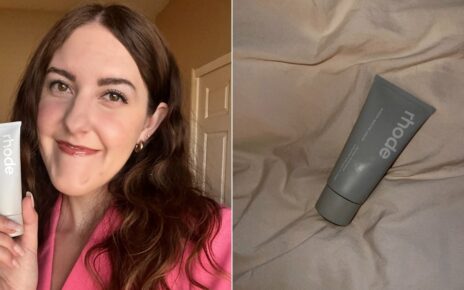Written by Lucy Partington
Freelance beauty editor Lucy Partington is obsessed with all things skincare, collecting eyeshadow palettes that she’ll probably never use, and is constantly on the hunt for the ultimate glowy foundation.
B Corp is considered the hardest sustainable certification to achieve. Here are the beauty brands who’ve successfully applied, plus what it means for both people and the planet.
Trying to shop more sustainably isn’t always as easy as it should be. Not only are there a vast number of considerations to take into account but different certifications cropping are increasingly cropping up to add to the confusion. Plus, with the number of different logos that can be seen on packaging – from the leaping bunny to The Vegan Society and COSMOS –it’s not always easy to work out what each individual certification claims to do and, importantly, whether those claims will result in having amy long-term, positive impact.
However, there’s one all-encompassing certification that’s considered the hardest to achieve and that’s B Corp. It’s a status that’s currently held by over 1,100 businesses across the UK, spanning 58 industries and more than 55,000 employees. While it’s not something that’s by any means exclusive to the beauty world, it is becoming increasingly common thanks to the sheer number of brands choosing to apply for B Corp status.
But what exactly does that mean and why does it matter? Here, we’ve broken down the basics and rounded up just a few of the brands that’ve gained certification.
What is B Corp certification?
B Corp (which is illustrated with a black ‘B’ in a circle) is the brainchild of a non-profit network called B Lab, whose aim is to “transform the global economy to benefit all people, communities and the planet”. It was introduced in 2006, and since then has become a pledge for businesses to use their weight and influence as a force for good rather than just to make money. It’s about profit, people and the planet, and it helps to prove that brands that have achieved B Corp status have a positive impact and better practices than those that don’t.
Think of it as the ultimate trump card for any brand. Applying for it is only the first step, and the process that follows is long and arduous – it can often take years – and it begins with a self-assessment made up of around 200 (non-linear) questions, followed by a stringent audit that scrutinises every single aspect of a business.
It nails brands to full transparency and covers five key areas: governance, community, environment, workers and customers. So that means it looks at everything including supply chains, raw materials, carbon footprint, how the company is run, the people who are hired and salary ratios. But that’s not all. It also takes things like energy consumption into account, where canteen food is disposed of and even the stationery used. In essence, it’s the difference between how good companies think they are versus how good they really are.
It’s also important to note that once a brand achieves B Corp status, that isn’t where the process ends. In order to maintain certification, businesses are required to adhere to strict legal practices and are assessed every three years.
The B Corp-certified beauty brands to know about
Davines
A hair brand that’s always led by example, Davines was founded in Italy in 1983 and it achieved B Corp status back in 2016. Consider it a must-try if you haven’t already: we love its Oi range, especially the All In One Milk, £24.50, that works to detangle, soften and protect against heat – all while smelling incredible.
Aveda
Following its commitment to go 100% vegan in 2021, Aveda was awarded its B Corp certification last year. It was also the first beauty company to use 100% post-consumer recycled materials in its packaging, and its manufacturing uses 100% renewable energy.
Elemis
Elemis is the first brand across its parent company, the L’Occitane Group, to achieve B Corp status, having been awarded it at the end of January this year. It took two years of implementing changes to processes and practices, as well as launching new initiatives across the business.
UpCircle
UpCircle is a brand that works to give a new lease of life to natural ingredients that would otherwise go to waste – like blueberries that are the by-product of the juicing industry, maple bark extract that’s a by-product of the wood industry and and coffee grounds that come from artisan cafes. It gained its B Corp status in 2022.
Innersense Organic Beauty
Known and loved for its organic hair and body products, Innersense was awarded its B Corp certification in 2021. As a result, its natural ingredients are all grown organically and sustainably without chemicals, and products are formulated using either cold-pressing, distilling techniques or pressed without synthetics in order to preserve purity.
The Body Shop
One of the biggest global brands that’s certified B Corp, The Body Shop was awarded in 2019. Its refill and recycling program (it was one of the first brands to offer refills back in the 1970s) alongside activism campaigning and the commitment to Community Fair Trade are just a few of the standout initiatives that helped to meet certification standards.
Aromatherapy Associates
Loved for its calming and relaxing range of bath and body products, Aromatherapy Associates achieved B Corp status in 2020. Its headquarters uses 100% renewable emergency, and as a brand it has removed over 1.5 tonnes of virgin plastics, instead using fully recyclable packaging.
Main image: Getty
Source: Read Full Article
